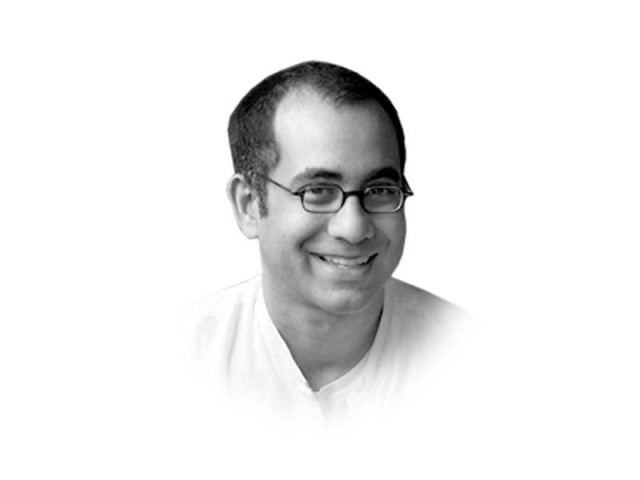Clinton, butterflies and Bin Laden
The butterfly effect of using Shakil Afridi to locate Osama bin Laden has resulted in attacks on health workers today.

The writer is a Canada-based editorial cartoonist and his work has appeared in several international publications
Clinton’s concussion, like the butterfly effect, has everything to do with the interconnectedness of life. A seemingly harmless blow to the head may cause memory lapses or blood clots. The butterfly effect describes how a small, deterministic action somewhere on our planet can have broad-ranging consequences somewhere else. The effect is all about the small things — how a tiny butterfly in a tropical rainforest can flap its wings, causing a huge storm to ravage continental Europe. It is said, nothing exists in isolation — the laws of cause and effect control everything.
Dr Shakeel Afridi was accused of carrying out a fake vaccination campaign in Abbottabad to acquire blood samples from Osama bin Laden (OBL) — helping the United States confirm whether the terrorist was living in a nearby house. Pakistani authorities caught Afridi as he was trying to flee the country and he was sentenced to 33 years in prison for abetting a foreign intelligence agency. The sentencing enraged many, who accuse Pakistan of punishing a man who helped track a wanted terrorist rather than investigating suspicious Pakistani networks that may have facilitated OBL to move and live in Abbottabad. The US Senate, as a result, slashed $33 million in foreign aid to Pakistan over Afridi’s conviction — $1 million for each of the 33 years of his sentence.
Afridi used World Health Organisation (WHO) cooler boxes for his clandestine operation even though no official immunisation drives were underway in Abbottabad. Humanitarian organisations protested, at the time of Afridi’s conviction, that intelligence operations under the guise of medical charities would endanger future projects — threatening immunisation efforts in Pakistan. Aid workers have unequivocally specified that they must operate independently from military forces in Pakistan or risk being perceived by locals — and militants — as being partisan and part of a counter-insurgency campaign.
The killing of OBL did not mark the end of extremism. Benjamin Franklin, one of the founding fathers of the US, once said, “For the want of a nail the shoe was lost; For the want of a shoe the horse was lost; For the want of a horse the rider was lost; For the want of a rider the battle was lost; For the want of a battle the kingdom was lost; And all for the want of a horseshoe-nail”. A few days ago, seven Pakistani charity workers were shot dead by militants. It was only last month that gunmen killed nine healthcare workers who were helping in a national polio vaccination drive in northwest Pakistan. Religious groups defying these immunisation programmes pontificate that health workers are being used by foreign powers to spy on locals. The killings prompted the United Nations and the WHO to stop polio eradication campaigns in Pakistan. Authorities were hoping to vaccinate 250,000 children in the area.
For this “want of the horseshoe nail”, there is no hope for us in 2013.
Published in The Express Tribune, January 3rd, 2013.















COMMENTS
Comments are moderated and generally will be posted if they are on-topic and not abusive.
For more information, please see our Comments FAQ